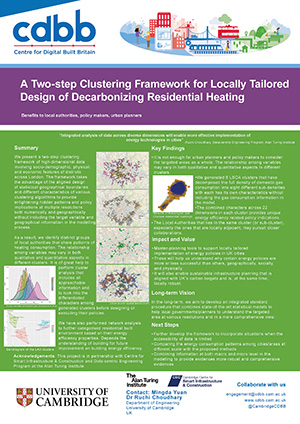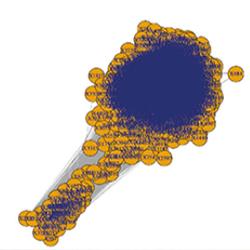
This project develops probabilistic master-planning tools to support effective implementation of energy policies in UK cities. It integrates high-dimensional data that spans environmental features, physical form & land-use, socio-demographics, and economics to analyse cities spatially. Outputs from the multi-dimensional analysis will be used to test resilience of energy policies to short term shocks and future changes at district scale. These kinds of multi-dimensional and multi-physics tools will help us understand why certain energy policies are more or less successful than others, geographically, socially, and physically.
It will also enable sustainable infrastructure planning that is aligned with UK’s carbon targets and is, at the same time, locally robust. Indeed, carbon saving measures are not uniformly beneficial to all people and buildings, and integrated analysis across diverse dimensions can help understand barriers or opportunities for their uptake.
Outcomes
We developed a framework that enables local authorities with shared characteristics to share decarbonisation strategies for residential heating.
Method
Modelling, data analysis, framework development
Next Steps
The framework needs to be further developed to cover situations where data is limited. Longitudinal comparison of city energy consumption at scale under this framework would be required to verify its applicability.


